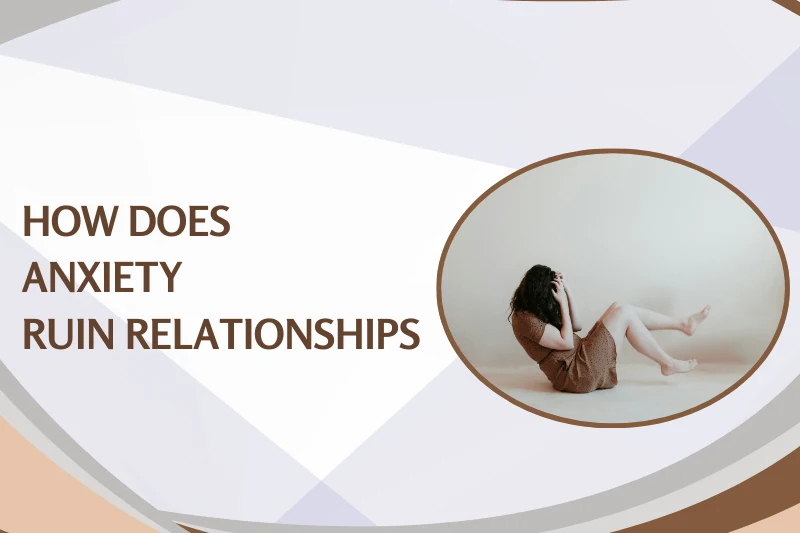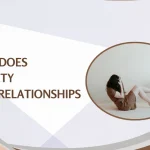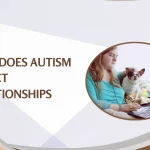Relationships can be tough to manage, but anxiety makes it even harder. It’s a big problem for many people and their partners. We need to understand how anxiety affects relationships to fix it.
Discover the ways anxiety impacts relationships and learn effective strategies to manage anxiety-driven behaviors. Find out how does anxiety ruin relationships and steps to heal.
Table of Contents
the Connection Between Anxiety and Relationship Problems
Dealing with relationships can be tough for those with anxiety disorders. Anxiety affects how we see, talk to, and bond with our partners. Knowing about different anxieties and anxious attachment helps us understand the complex relationship between anxiety and relationships.
Different Types of Anxiety Disorders Affecting Relationships
Generalized anxiety makes people worry a lot, while social anxiety stops them from being in social situations. Panic disorder causes sudden fear attacks, which can hurt relationships. These anxieties make it hard to have good relationships.
The Role of Anxious Attachment Style in Partnerships
Anxious attachment style comes from childhood and affects how we relate to others. People with this style often struggle with trust and fear of being left. They need constant reassurance, making it hard to have a secure relationship.
Recognizing Anxiety Symptoms in Relationships
It’s important to know the signs of anxiety in relationships. Look for too much worry, being overly sensitive, trouble talking, and pulling away. Spotting these signs helps partners work through issues and keep their relationship strong.
How Does Anxiety Ruin Relationships: A Deep Dive into Its Effects
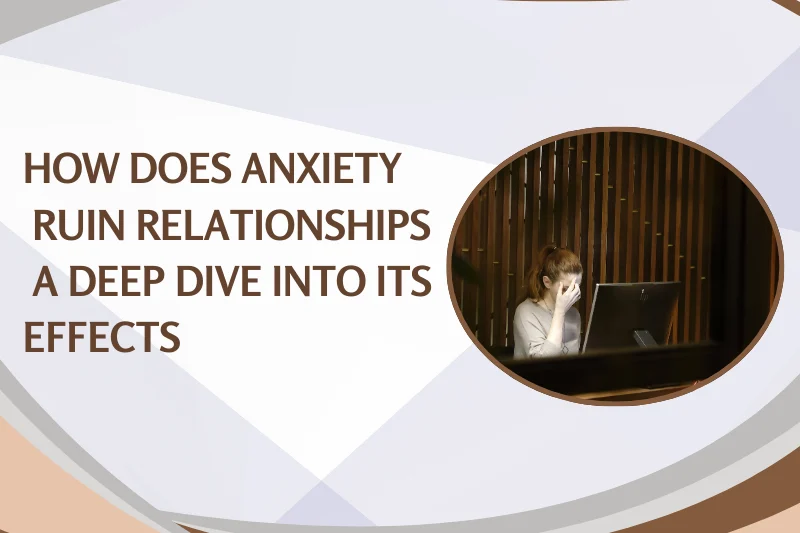
Anxiety can destroy even the strongest relationships. It can hurt intimacy, trust, and happiness in a relationship. Anxious behaviors, like needing constant reassurance or avoiding things, can harm the bond between partners.
Trust is often the first casualty of anxiety in relationships. Anxious people might see threats everywhere, leading to constant worry and fear of being left. This can make them check in too much, ask too many questions, or even accuse their partner of cheating. This can make their partner feel trapped and not trusted.
Anxiety also affects emotional closeness. The fear of being vulnerable and the need to protect oneself can make it hard to open up. This distance can lead to feeling alone and disconnected from one’s partner.
Dealing with an anxious partner is challenging but not impossible. It takes patience, understanding, and clear communication. Setting boundaries and encouraging the anxious partner to get help are key steps in overcoming anxiety’s impact on a relationship.
The Impact of Anxiety on Emotional Intimacy and Connection
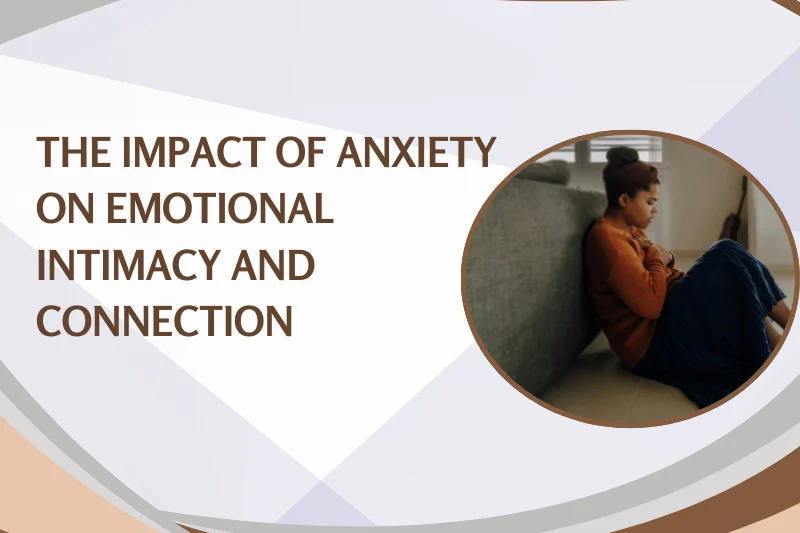
Dealing with anxiety can make relationships tough. Anxiety affects how we connect emotionally. It makes it hard to be open and vulnerable, key for deep relationships.
Fear of Vulnerability and Its Consequences
People with anxiety often fear being open. This fear stops them from sharing their feelings and thoughts. It makes relationships feel distant and lacking in trust.
Emotional Distance and Withdrawal Patterns
Anxiety can lead to pulling away from loved ones. When feeling overwhelmed, anxious people may pull back. This can make their partners feel ignored or uninterested.
Physical Intimacy Challenges Due to Anxiety
Anxiety can also affect physical closeness. It can cause fear and self-doubt, making it hard to be intimate. This can start a cycle of avoiding closeness, hurting the emotional and physical bond.
It’s important to tackle anxiety to improve relationships. By finding ways to manage anxiety, couples can build a stronger, more connected bond.
see Also : Breaks Are good For Relationships ?
Communication Breakdown: When Anxiety Interferes with Expression
Anxiety can really mess up how we talk to each other in relationships. When someone is anxious, they might find it hard to share their thoughts and feelings. This can lead to misunderstandings, fights, and less closeness between partners.
People who are anxious might see things that aren’t really there. They might think their partner is upset or mad, even if they’re not. This can cause them to react too strongly or pull away from talking. It’s hard for partners to really get what the other is trying to say.
Also, being anxious can make people scared to be open and honest. They might not want to share their deepest thoughts and feelings. This can make the relationship feel distant and less connected. It’s harder to work through problems and understand each other better.
FAQ
How does anxiety ruin relationships?
Anxiety can harm relationships in many ways. It can cause trust issues and make intimacy hard. It also leads to communication problems and makes couples unhappy.
Anxiety can make people seek too much reassurance or avoid certain situations. This can hurt the emotional bond between partners over time.
What are the different types of anxiety disorders that can affect relationships?
Anxiety disorders like generalized anxiety, social anxiety, and panic disorder can impact relationships. These disorders can make people pull away emotionally or have trouble expressing their needs.
They can also make people fear being open and vulnerable. This fear can strain the partnership.
How does an anxious attachment style affect relationships?
An anxious attachment style comes from early childhood experiences. It can greatly affect how relationships work. People with this style often need constant reassurance and fear being left.
They also struggle to trust their partners. This can make relationships challenging.
How can anxiety affect emotional intimacy and connection in a relationship?
Anxiety can make it hard to be open and emotional. The fear of being rejected or judged can push people away. This makes building deep connections and intimacy tough.
How does anxiety impact communication in a relationship?
Anxiety can mess with communication in several ways. It can cause misunderstandings and make it hard to express feelings. It also leads to avoiding conflicts.
These issues can make relationship problems worse. It becomes harder for couples to deal with the anxiety-related concerns.
